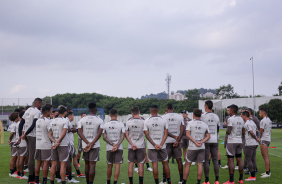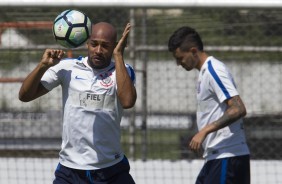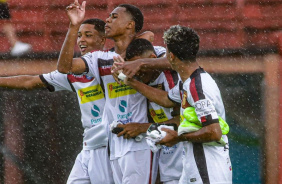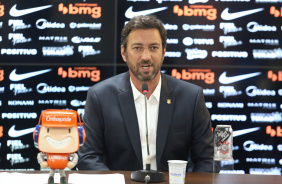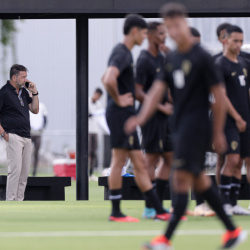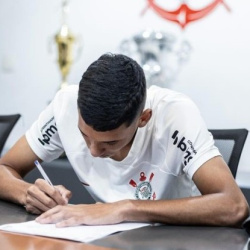Morte de Sócrates - The New York Times
1.4 mil visualizações 0 comentários Reportar erro
Sócrates Brasileiro Sampaio de Souza Vieira de Oliveira was trained as an orthopedic surgeon. He could have been operating a clinic for the poor of Brazil, but instead he needed a clinic for the treatment of his excesses.
He was also a folk singer and an activist, as well as a creative soccer player who has loomed in my mind since the summer of 1982 in Barcelona.
Was his charisma a figment of my imagination? Did I overreact to the couple of times I met him? Turns out, a whole swath of the world is grieving for Sócrates, for what he was, and what he could have been.
On Sunday, an Arsenal fan in Brooklyn sent me the Brian Glanville obituary from The Guardian. I heard from a Lebanese-born reader named Ibrahim who knows I adored Sócrates. And I heard from my cousin-in-law, Samuel Guttenplan, an American-born philosopher who has been teaching in Europe long enough to understand the metaphysics of the Sócrates of soccer.
“I may be reading something into the name that I shouldn’t,” Sam wrote me in an e-mail, “but he always seemed a philosopher-player: he seemed able to see the game from above while playing hard along with the others. He always seemed to have so much time, no matter how quickly events were moving on the pitch.”
As an American, I never knew this sport could be played at such a high level until I saw Sócrates and his teammates during my first World Cup in Spain in 1982.
In that prehistoric time, before the Internet, before information floated in the ozone, I was a soccer novice who had never heard of Sócrates until somebody pointed him out — swarthy, shaggy, tall, slender, mysterious. He is a doctor, somebody said. And he is a folk singer. And he is an activist.
Brazil was playing a bizarre triangular second round with Italy and Argentina in the magic city of Barcelona. Talk about the Group of Death: only one squad would survive to the semifinal. The short-sighted schedule had forced these three powers to play in funky little Sarria Stadium, known as La Bombonera — the Chocolate Box.
Into La Bombonera danced the most agile, rhythmic, beautiful, sensuous people I have ever seen. And that was just the fans. The mystical Brazilian flag waved, and the ball swerved around the field, to the samba beat.
With no wasted motion, this willowy 6-foot-3 artist named Sócrates would spin around a defender, purposefully flicking the ball on a diagonal, 10 or 15 yards perhaps, to a blond will-o’-the-wisp named Falcao, who would sprint forward with the ball seemingly on a yo-yo from his toes, and then Falcao would loft the ball near the goal, toward flying Wallendas named Zico or Eder.
Oh, my goodness, how in the world did they control it so beautifully? My untrained eyes could barely follow the play, partly because they did not want to leave Sócrates, as he masterminded the flow, sometimes with an artful backheel pass. Because I had been told of his medical training and his social causes, I found him the most fascinating athlete in this sport, which encourages spontaneous brilliance.
In the final match of that odd round, Brazil needed only a draw to advance to the semifinals. Sócrates scored early, but Brazil could not lock down its defense, and Paolo Rossi scored three goals for Italy in a 3-2 victory. That game, that triangular round, might have been the best soccer I will ever see, after seven subsequent World Cups.
One month later, there was an all-star game for Unicef in New Jersey, and Sócrates agreed to plug the charity in a telephone interview, arranged by our mutual friend, Julio Mazzei, the coach of the Cosmos.
In deep, guttural Portuguese, Sócrates praised Italy’s persistence in the World Cup, and he praised Unicef, and he talked about how he blended medical school and professional soccer.
“There were times when I was up 24 hours straight studying and working in the hospital,” Sócrates said. “Then I would play a game for Botafogo without practicing with the club all week.”
Eventually, he went to the Corinthians club and put his medical practice aside — temporarily, he said. “I knew I could always go back to medicine,” he said, “but I would never have another chance to play football.”
Then he made a conversational swerve into the pitfalls of sport, a view that sounds eerily prophetic 29 years later. He discussed how he had organized an association of players to provide counseling near the end of their careers.
“I worry a lot about their futures,” Sócrates volunteered. “They finish playing, and they are not prepared for anything else.”
He added, “I think of Garrincha, for example,” referring to an earlier Brazilian star who died of his excesses a year later, just short of 50.
Sócrates kept delaying his medical career, moving to Fiorentina in Italy for a while, trying to hold an aging Brazil together in Mexico in 1986, making his generation the best national squad to fail to win a World Cup. And finally he retired.
I assumed he was mending the bones of children, but in fact he was working in politics, goading Brazil toward modernity.
The next time I saw Sócrates was in 1998 in Paris, when somebody assembled an all-time World Cup team that included him. We chatted for a few minutes in a mélange of languages, but I recognized a certain fuzziness. Sócrates was not totally there.
“In a strange way, he shared something else with the original,” added Sam Guttenplan, my philosopher relative, from London. “He didn’t drink hemlock, but he did pretty much drink (and smoke) himself to death, even though he was a doctor and certainly knew better. (The original Socrates didn’t have to drink the hemlock: his friends and even enemies thought he would simply leave Athens, perhaps for a period of time. But he was stubborn.)”
Sócrates Brasileiro Sampaio de Souza Vieira de Oliveira was stubborn, too. Every sport has superstars who flamed out young, but hardly any doctor-folksinger-activists. For me, it will always be Barcelona in 1982, with a tall and cerebral midfielder launching passes into open space, displaying some possibilities of this beautiful game.
Fonte: http://www.nytimes.com/2011/12/07/sports/soccer/ge
Enviado por: Felipe A. R. Santos
